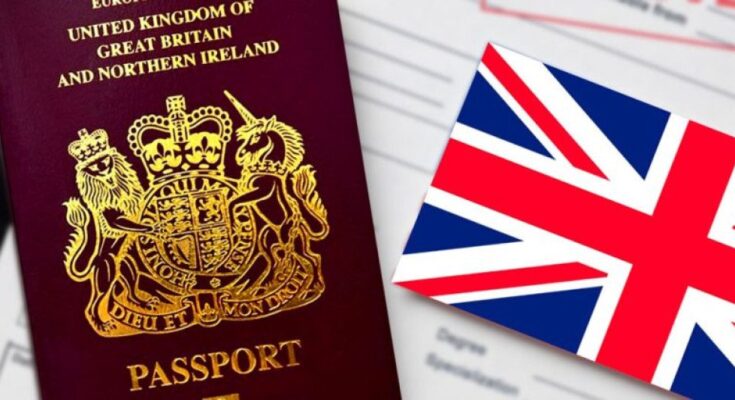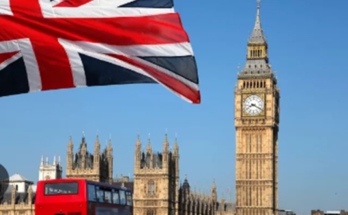United Kingdom Visa Requirements: Immigrating to the United Kingdom represents a significant step for many. Understanding the specific visa requirements is crucial to navigating this process smoothly.
Whether for business or general purposes, staying informed ensures a successful transition. This article outlines essential guidelines to help you prepare adequately.
General Visa Requirements for the UK
When planning to visit or move to the United Kingdom, understanding the visa requirements is crucial. Whether you’re visiting for tourism, business, or study, certain general prerequisites apply to all visa categories. Here’s a breakdown of the common requirements and documentation needed for UK visas:
List of Common Prerequisites for All UK Visas:
- Valid Passport: Your passport must be valid for the entire duration of your stay in the UK, with at least one blank page.
- Proof of Financial Means: You must provide evidence that you can support yourself (and any dependents) during your stay. This could include bank statements, pay slips, or a sponsorship letter.
- Accommodation Details: Proof of where you will be staying during your visit, such as hotel bookings or a letter from a host.
- Travel Itinerary: A detailed plan of your activities and travel within the UK, including entry and exit dates.
- Health Insurance: While not mandatory for all visas, health insurance is recommended to cover any medical expenses during your stay.
- Biometric Information: Most applicants need to provide fingerprints and a photograph as part of the application process.
- UK Visa Application Form: Fully completed and signed, corresponding to the specific visa category for which you are applying.
Documentation Needed:
- Personal Identification Documents: Besides a valid passport, you may need additional ID forms like a birth certificate or driver’s license.
- Employment Status: Employment letters, proof of business operations, or student status from your home country.
- Financial Documentation: Recent financial statements, sponsorship declarations, or funding evidence for students.
- Previous Travel: History of previous visas and entries to the UK or other countries can be required.
- Criminal Record Certificate: Some applicants might need to provide a police certificate to prove they do not have a criminal history.
However, always check the latest guidelines from official UK government resources or consult with a visa expert for the most current information.
Types of Immigrant Visas in the UK
Navigating the landscape of UK immigrant visas can be daunting, but understanding the primary types available can help simplify the process. Whether you’re a skilled worker, an entrepreneur, or looking to reunite with family, the UK offers several visa categories tailored to diverse needs.
Tier 2 Visas: Skilled Workers and Special Categories
Tier 2 Visas are designed for skilled workers who have a job offer in the UK, sportspersons recognized at an international level, and ministers of religion undertaking preaching and pastoral work. This category ensures that industries in need of specific skills can recruit talent from outside the European Economic Area (EEA).
Tier 1 Visas: Entrepreneurs and Exceptional Talent
Tier 1 Visas cater to high-value migrants entering the UK. This group includes entrepreneurs ready to start or invest in a business within the UK, investors willing to put a substantial amount of money into the UK economy, and exceptionally talented individuals recognized as leaders or emerging leaders in fields such as science, humanities, engineering, medicine, digital technology, and the arts.
Family Visas: Joining Relatives in the UK
Family Visas provide a pathway for individuals looking to join their partners, children, or other family members who are permanent residents in the UK. These visas are crucial for families wishing to stay together when one member resides in the UK, ensuring that family reunification is possible under UK immigration law.
Each visa type has specific requirements and conditions, so it’s important to consult the latest guidance or seek professional advice to determine the best route for your circumstances.
Step-by-Step United Kingdom Visa Application Process
Applying for a United Kingdom visa involves a clear and straightforward process. Whether you are planning a holiday, a business trip, or intending to study or work in the UK, understanding each step ensures a smooth application experience. Here’s how to navigate the process.
Where and How to Apply
- Determine the Type of Visa Required: Before you begin your application, identify the correct visa type based on your travel purpose. The UK offers various visa categories, including tourist, student, work, and transit visas.
- Complete the Online Application Form: Visit the official UK government website for visa and immigration to fill out your visa application form. You’ll need to provide personal information, travel details, and the reason for your visit.
- Gather Required Documents: Compile all necessary documents. This typically includes your passport, proof of accommodation, a travel itinerary, financial statements, and a letter of invitation or enrollment, depending on your visa type.
- Pay the Visa Fee: Fees vary depending on the visa type and the length of your stay. Payment is usually made online during the application process.
- Book an Appointment: After submitting your application and payment, you’ll need to book an appointment at a Visa Application Centre (VAC) nearest to you. This is necessary for the biometric information collection (fingerprints and photograph).
- Visit the Visa Application Centre: Attend your appointment at the VAC, bringing all your documents, including your appointment confirmation, passport, and any other supporting documents.
Scheduling an Interview: What to Expect
- Interview Notification: Not all visa applications require an interview. However, if one is needed, you will be notified by the embassy via the contact details provided in your application.
- Preparing for the Interview: Prepare to discuss your travel plans, your ties to your home country, and your financial situation. Be honest and provide clear, concise answers.
- What to Bring: Bring your appointment letter, passport, all application forms, and any other documents that support your visa application. It’s also wise to bring a copy of all your submitted documents.
- During the Interview: The interviewer will ask questions to verify the information you provided in your application. This is to assess your intentions and your financial ability to support your stay in the UK.
- Post-Interview: After the interview, additional processing will take place. You may be required to wait for some time while your visa application is finalized.
Following these steps carefully will help ensure that your application for a UK visa is complete and processed without delays. Be sure to check the latest information on the official UK government website, as visa policies and procedures can change.
United Kingdom Visa Special Requirements for Different Countries
Navigating the requirements for a United Kingdom visa can be complex, as they vary significantly based on the applicant’s country of origin. Each region may have distinct requirements that need careful attention. Here’s a brief overview highlighting these differences:
Africa
Applicants from Africa may need to provide additional documentation related to economic circumstances or proof of ties to their home country to deter overstaying visas. Countries like Nigeria, South Africa, and Kenya often require interviews at local visa application centers.
Asia
For Asian applicants, especially from countries like China and India, the UK visa process often includes stringent checks on financial stability and employment history. Biometric information and previous travel history may also be scrutinized more thoroughly than in other regions.
America
North American applicants, including those from the United States and Canada, generally experience fewer hurdles due to visa waiver agreements. However, South American applicants, like those from Brazil and Argentina, might need to demonstrate strong economic ties to their country to avoid the risk of visa refusal based on potential immigration concerns.
However, applicants are advised to check the latest guidelines from official UK government sources or consult with a visa expert to ensure compliance with current requirements.
United Kingdom Visa Financial Requirements
Understanding the financial requirements and preparing the necessary documents in advance can streamline your application process. Here’s a concise guide to help you navigate through these prerequisites with ease.
Evidence of Financial Means to Support Oneself
To demonstrate your financial capability when applying for a UK visa, you’ll need to provide specific documents, including:
- Bank Statements: Recent statements, typically from the last six months, showing consistent income and sufficient savings.
- Payslips: If employed, your recent payslips can illustrate steady employment and earnings.
- Financial Sponsorship: If someone else is funding your trip, provide a letter from your sponsor detailing their commitment along with their financial documents.
- Scholarship Letters: For students, an official letter confirming a scholarship can also serve as proof of financial support.
How to Prove Financial Sustainability in the UK
Proving your financial sustainability involves more than showing you have the funds; you must demonstrate that these funds are accessible and sufficient for the duration of your stay:
- Official Financial Statements: Ensure your financial documents are official and stamped by relevant authorities or banks.
- Sufficient Funds: Calculate the expected cost of living in the UK for the duration of your stay and show that you have more than this amount.
- Consistency of Funds: Display a stable financial history with regular income or long-term savings, avoiding any appearance of sudden, unexplained deposits.
By methodically preparing these documents and ensuring they reflect your financial health accurately, you can satisfy the UK visa financial requirements, paving the way for a successful application.
Health and Character United Kingdom Visa Requirements
When applying for a visa to the United Kingdom, prospective visitors must meet certain health and character requirements to ensure they do not pose a risk to the public and are of good standing. This guide provides an overview of the medical examinations and police clearance certificates required.
Medical Examinations Required
- Tuberculosis Screening: Applicants from certain countries must undergo a tuberculosis (TB) test if they are coming to the UK for more than 6 months. This test must be conducted at a clinic approved by the UK Home Office.
- General Medical Examination: Depending on the type of visa and the length of stay, a general medical examination may be required to assess overall health. This is more common for long-term visas such as those for work or study.
- COVID-19 Certification: Currently, proof of COVID-19 vaccination may be required, depending on the applicant’s country of departure and the prevailing UK entry requirements at the time of application.
Police Clearance Certificates
- Requirement: All long-term visa applicants need to provide a police clearance certificate from every country they have lived in for 12 months or more, over the past 10 years. This is mandatory for those applying for work, study, or immigration visas.
- Importance: These certificates are crucial as they verify the applicant’s criminal record status, demonstrating they have not been involved in serious criminal activities. It helps maintain the security of UK residents and upholds public safety standards.
By fulfilling these health and character requirements, applicants can ensure a smoother process in their UK visa application, demonstrating their readiness and eligibility to enter the UK.
United Kingdom Visa Fees and Processing Times
When planning a trip to the United Kingdom, understanding the visa fees and processing times is crucial. Here, we provide a comprehensive breakdown of fees for various types of visas along with expected processing times and factors that might influence these timelines.
Breakdown of Visa Fees
Standard Visitor Visa:
- Short-term (up to 6 months, single or multiple entry): £100
- Long-term (valid for up to 2 years): £376
- Long-term (valid for up to 5 years): £670
- Long-term (valid for up to 10 years): £837
Tier 2 Visa (General worker):
- Main applicant: £625
- Dependents: Same as main applicant
Tier 4 Visa (Student):
- General student visa: £363 (for applications made outside the UK)
Tier 5 Visa (Temporary worker):
- Youth Mobility Scheme: £259
- Creative and sporting persons: £259
Spouse or Partner Visa:
- Applying outside the UK: £1,538
- Applying inside the UK (standard service): £1,048
These fees are subject to change based on policy updates, and additional fees may apply for expedited processing or optional services.
Expected Processing Times and Factors Affecting It
Processing times for UK visas can vary significantly based on the type of visa, the applicant’s country, and the completeness and accuracy of the application submitted. Here are general guidelines:
- Standard Visitor Visas are typically processed within 3 weeks of the application date.
- Work Visas, including Tier 2 and Tier 5, usually take about 3 weeks to process when applied from outside the UK.
- Student Visas under Tier 4 are often processed within 3 weeks, provided all required documents are in order.
- Spouse or Partner Visas may take up to 12 weeks when applied from outside the UK and up to 8 weeks from within the UK using standard service.
Factors influencing processing times include:
- Volume of applications: High demand periods, such as holidays and peak travel seasons, may extend processing times.
- Incomplete applications: Missing documents or incorrect information can cause delays.
- Consular efficiency: Processing efficiency can vary by location and staffing levels.
Applicants are advised to apply well in advance of their intended travel date to accommodate any unforeseen delays in processing. For the most accurate and updated information, visiting the official UK government immigration website is recommended.
Common Mistakes to Avoid in the UK Visa Application Process
Applying for a visa to the United Kingdom requires meticulous attention to detail and a clear understanding of the process. Even minor errors can lead to delays or outright rejections. To improve your chances of a successful application, it’s crucial to be aware of common pitfalls and how to avoid them.
Errors That Could Lead to Visa Rejections
- Incomplete Forms: Failing to fill out the visa application form completely and accurately is one of the most common mistakes. Every section should be answered thoroughly, and no blanks should be left unless they truly do not apply to your situation.
- Incorrect Information: Submitting incorrect information, whether unintentional or not, can lead to a visa refusal. Double-check all entries for accuracy, including dates, names, and passport numbers.
- Inadequate Documentation: Not providing all required documents or providing documents that do not meet the criteria (e.g., outdated financial statements, insufficient proof of ties to home country) can result in a denial.
- Failure to Meet Financial Requirements: Demonstrating that you have sufficient funds to support yourself during your stay is crucial. Lack of evidence regarding financial stability or inadequate funding can be a red flag for visa officers.
- Mismatched Application Details: Ensure that the details in your visa application match those in your supporting documents. Inconsistencies between your application form and documents like your invitation letter, hotel bookings, or itinerary can lead to suspicion and potential rejection.
- Poor Quality Supporting Documents: Blurry photocopies, non-legible documents, or improperly formatted papers can undermine your application’s credibility. Always provide clear, legible, and properly formatted documents.
Tips for a Successful Application
- Follow Instructions Carefully: Read all the guidelines provided by the UK visa application centers. Adhering strictly to the instructions can prevent most errors.
- Prepare Comprehensive Documentation: Gather all necessary documents well in advance of your application. This includes travel itineraries, bank statements, employment letters, and any other documents that support your case.
- Provide Proof of Ties to Your Home Country: Demonstrating strong ties to your home country, such as a job, family, or property, can enhance your application by showing that you have reasons to return home after your visit.
- Use a Checklist: Before submitting your application, use a checklist to ensure all parts of the application are complete and all required documents are included.
- Seek Professional Advice: If possible, consult with a visa specialist or an immigration lawyer who can provide valuable insights and guidance throughout the application process.
By avoiding these common errors and following the tips provided, you can enhance the likelihood of a successful UK visa application and smooth your path to visiting the United Kingdom.
Legal Rights and Responsibilities of UK Visa Holders
UK visa holders are granted specific rights and responsibilities that vary based on the type of visa issued. Understanding these rights and obligations is crucial for maintaining legal status and making the most of one’s stay in the UK.
Rights Bestowed by Different Visa Types
- Work Visas (Tier 2 and Tier 5): These visas typically allow holders to work for a sponsoring employer in the UK. Rights include access to healthcare services through the NHS, eligibility to apply for public funds (subject to conditions), and the possibility of bringing dependents to live in the UK.
- Student Visas (Tier 4): Students are permitted to study at a registered UK institution, work part-time during term (limitations apply), and full-time during vacations. They also have access to healthcare, provided they are enrolled in courses longer than six months.
- Visitor Visas: Visitors have the right to stay in the UK for the duration specified on the visa for purposes such as tourism, visiting family, or short business activities. However, they cannot work or access public funds.
- Settlement Visas (Indefinite Leave to Remain): These grant the right to live, work, and study in the UK indefinitely, with access to public funds and healthcare services. Holders can also apply for British citizenship after meeting certain residency requirements.
Legal Obligations and Conditions to Maintain Visa Status
- Reporting Changes: Visa holders must report changes in circumstances, such as address, marital status, or the institution of study, to the UK Home Office.
- No Overstay: It is critical to respect the visa expiration date. Overstaying can lead to deportation and re-entry bans.
- Adherence to Work Restrictions: Work visa holders must stick to the terms of their employment as specified in their visa and can only change jobs with proper authorization.
- Registration with the Police: Nationals from certain countries must register with the police upon arrival in the UK or face penalties.
- Maintaining Financial Stability: Visa holders must not rely on public funds unless their visa explicitly allows this, and must maintain sufficient funds to support themselves and any dependents.
However, it is advisable for all visa holders to keep themselves updated with any changes to immigration regulations during their stay in the UK.
FAQs About United Kingdom Visa Requirements
1. Who needs a visa to enter the United Kingdom?
Most non-UK residents and citizens from countries outside the European Union and Switzerland need a visa to enter the United Kingdom. However, some Commonwealth and non-visa national countries may enter the UK for short stays without a visa.
2. What are the different types of UK visas available?
The UK offers various visas including Tourist Visas, Work Visas, Study Visas, and Family Visas. Each visa type has specific requirements and is designed to cater to different purposes of visit.
3. How do I apply for a UK visa?
You can apply for a UK visa online through the UK government’s official website. After filling out your application form, you’ll need to book and attend an appointment at a Visa Application Centre to provide your biometric information.
4. What documents are required for a UK visa application?
Generally, you’ll need a valid passport, proof of financial means, accommodation details, travel itinerary, and a recent photograph. Additional documents may be required depending on the visa type, such as proof of relationship or invitation letters.
5. How long does it take to process a UK visa?
Processing times can vary significantly depending on the visa type and the applicant’s country. On average, it takes about 15 working days to process a standard visitor visa, but this can vary, especially during peak travel seasons.
6. How much does a UK visa cost?
The cost of a UK visa varies depending on the type and duration of the visa. As of now, a Standard Visitor Visa costs around £100 for a short-term (up to 6 months) visit, but prices increase for longer durations and different visa types.
7. Can I extend my UK visa while in the UK?
Some visas may be extended, but it depends on the visa type and your circumstances. You must apply for an extension before your current visa expires and meet all the necessary criteria.
8. What can lead to a UK visa application being denied?
Common reasons for visa denials include insufficient proof of funds, unclear travel intentions, inaccurate or incomplete application forms, and lack of strong ties to your home country to ensure your return.
Conclusion
Navigating the complexities of the UK’s visa requirements is crucial for a successful application. Understanding these regulations ensures compliance and enhances your chances of gaining entry into the United Kingdom.
To optimize your application process, seeking personalized advice from immigration experts is highly recommended. These professionals can provide tailored guidance and support, helping you to navigate any potential hurdles and simplifying the intricacies of immigration procedures.
Whether you are traveling for work, study, or leisure, consulting with experts will pave the way for a smoother, more efficient visa application experience.
References
For further reading and to verify the information provided on United Kingdom visa requirements, consider exploring these reputable sources:
- UK Government Official Website – The primary source for the most accurate and up-to-date information regarding visa requirements and application processes. Visit their site at gov.uk/browse/visas-immigration.
- British Embassy and Consulates – Offers detailed guidance and additional support for visa applicants. Each embassy may have variations depending on your location. Find your nearest embassy at gov.uk/world/embassies.
- Immigration Law Practitioners’ Association (ILPA) – Provides resources and legal updates that are invaluable for understanding visa regulations. Check out their resources at ilpa.org.uk.
These sources are essential for anyone looking to understand the complexities of applying for a visa to the United Kingdom, ensuring you have the most reliable and current information at your disposal.



